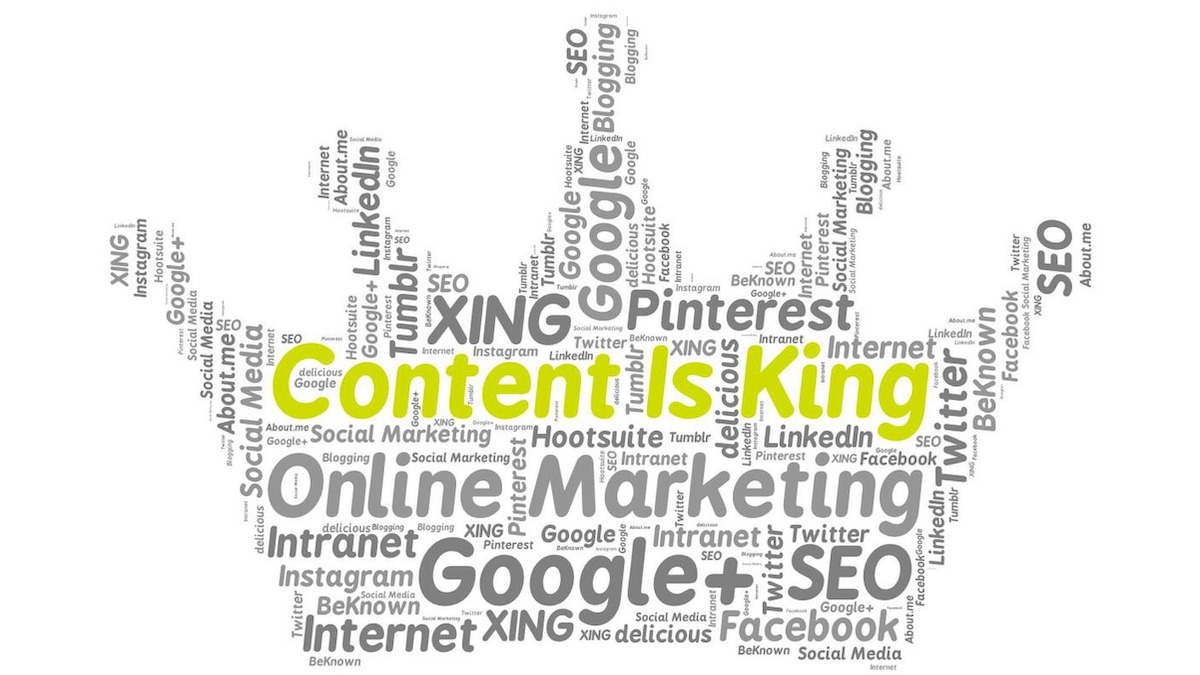Why You Need A Content Marketing Strategy
 The fundamentals of content marketing are simple: create and distribute the content your target audience will find valuable and will use to make a purchase decision. If you’ve purchased anything within the past decade, you’ve been exposed to – and probably influenced by – content marketing. In fact, content marketing has been around long enough that people have been trained to expect it: 84% of people expect brands to create content that provides solutions and produces experiences.
The fundamentals of content marketing are simple: create and distribute the content your target audience will find valuable and will use to make a purchase decision. If you’ve purchased anything within the past decade, you’ve been exposed to – and probably influenced by – content marketing. In fact, content marketing has been around long enough that people have been trained to expect it: 84% of people expect brands to create content that provides solutions and produces experiences.
But if your content marketing isn’t contributing to your business goals – if your content doesn’t help gather leads, sales, followers, influence, or another clearly defined objective – then something within your content marketing strategy is fundamentally broken.
I make this claim because 92% of marketers say their company views content as a business asset. The content they create and distribute delivers a significant impact on their balance sheet, enough to be considered an asset.
How do you get to a point where content becomes a business asset?
Just like any other marketing campaign, content marketing needs to be fueled by an overarching marketing strategy. At its basic level, a content marketing strategy drives everything from the topics you develop to content medium to distribution platform selection. But looking beyond those basics, a content marketing strategy is the necessary roadmap for how all of your content pieces will work together to attract and convert prospects.
A calculated content marketing strategy does more than dictate how to execute tactics. It will also do the following:
1. Gives specific goals and KPIs to work toward and celebrate
Whether you’re creating your first pieces of content or you’re a content churning machine, without context you will have no idea whether your creations are good or bad unless you have something to measure against. A content marketing strategy specifies what you are working toward so you can measure how different topics, formats, channels, and calls to action best achieve your goals. It also gives you the ability to recognize and celebrate when things go well, providing extra motivation for creating great content.
2. Keeps the team focused on the same priorities
If more than one person is working on or using your content, you are guaranteed to have more than one opinion on what topics should be covered or channels should be targeted. By creating an intentional content strategy, you are able to establish content priorities based on your business goals. Then every decision becomes centered on whether or not it matches your stated goals.
3. Makes sure the budget dollars are being allocated correctly according to desired results
It’s no secret that some content platforms have become a “pay to play” scene, where the best way to make an impact with content requires some promotional budget behind it. Your content marketing strategy helps determine how much money is appropriate for each channel, taking into consideration expected performance and realistic impact on your goals.
4. Creates a cohesive experience for your new prospects and current clients
Without a strategy, creating content becomes a constant churn of text and pictures. In these scenarios, we often see content that doesn’t follow brand guidelines, adopts varying tones of voice, is posted inconsistently across digital channels, or delivers conflicting messaging. Instead, content should be used to build a consistent experience with the brand so your audience knows what to expect in terms of brand personality, quality of information, and brand appearance. Having a content strategy helps dictate when content should be produced, what the goals of the content are, and how it ties back to the brand.
5. Identifies gaps in your content offerings
As Cheryl Irwin-Bass explained in a previous article, people go through a process before they decide to partner with or purchase from a company, and they require support throughout that process. Remember, 84% of people expect brands to create content that provides solutions and produces experiences. Unfortunately, there is no way to know which stage of the process someone is in when they start interacting with your content and your brand. This is why it’s critical to have a strategy for creating valuable content for each stage of your client or customer relationships. Having a content strategy maps out what content is needed for each stage, and where you need to increase the quantity or quality of content offered.
Whether you’re a prolific content generator or you’re a small operation with the capacity to create only a piece or two at a time, having a roadmap for your content creation and distribution can turn your content into an asset for your business. Creating that marketing strategy – let alone executing it – is difficult. It involves asking a lot of questions upfront and being realistic with the answers. Fortunately, Scheffey has been helping clients create and execute content marketing strategies for decades. We’d be honored if you gave us a crack at establishing yours. Give us a call to get started, or complete our contact form and we’ll reach out to you.
Additional Reading
